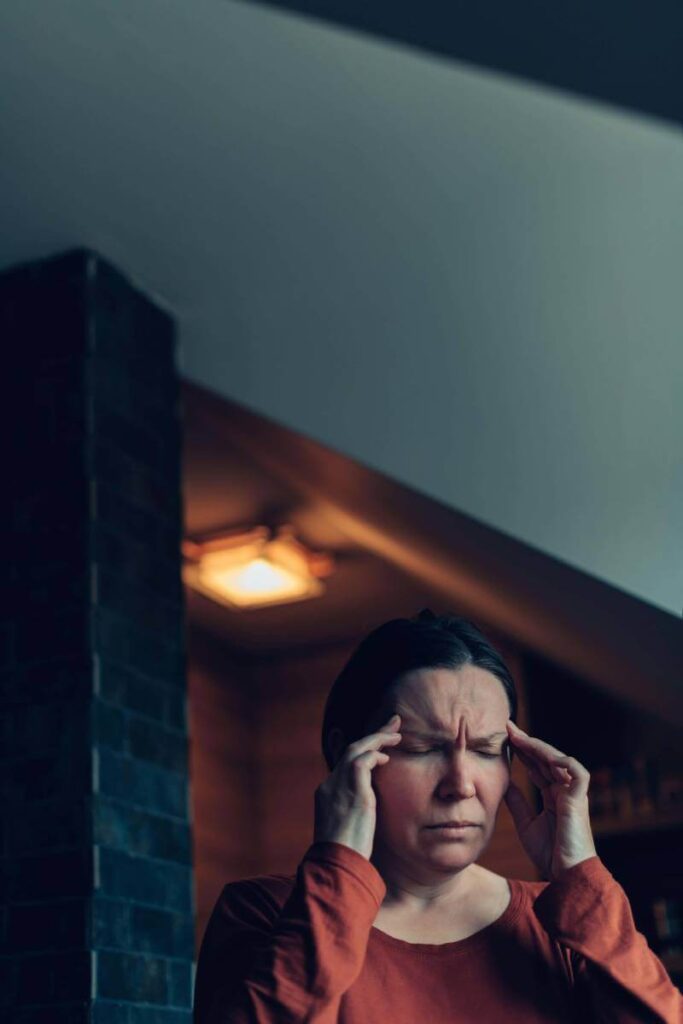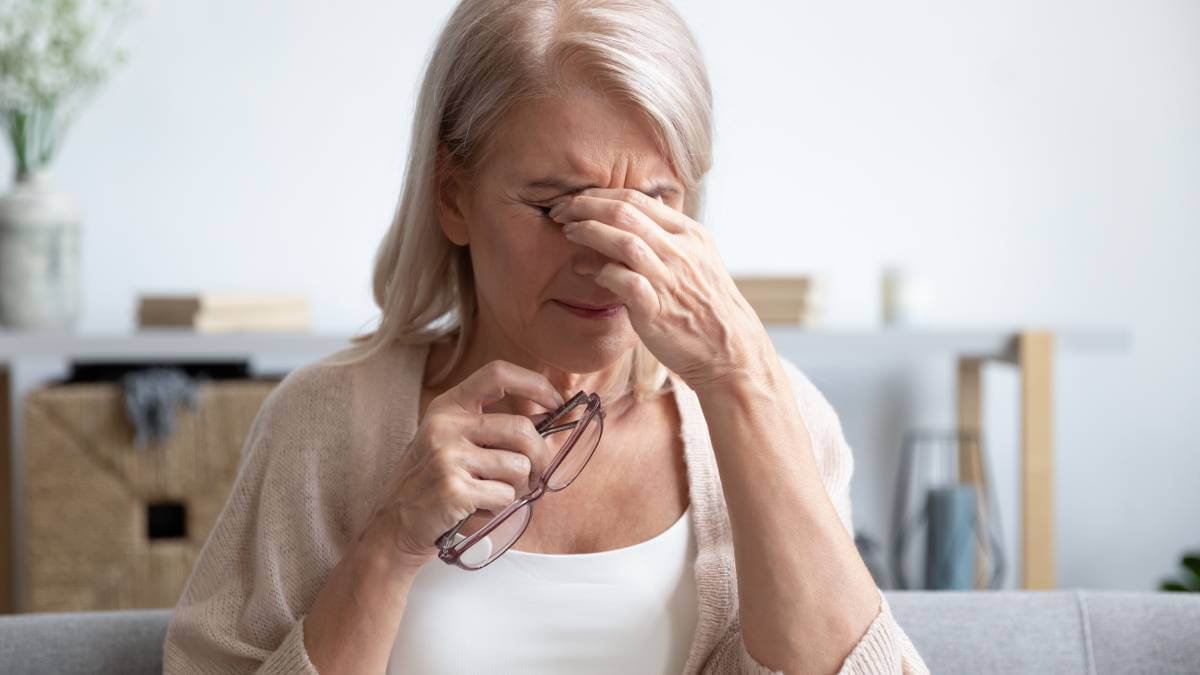Cluster headaches may be more common in men, but are more severe in women, according to new research.
These are short, painful headaches occurring in a row – sometimes for many days or weeks, and lasting between 15 minutes and three hours.
A new study from the Karolinska Institutet in Stockholm, Sweden, surveyed 874 people diagnosed with cluster headaches, with 66 per cent male and 34 per cent female. It found 18 per cent of women were diagnosed with chronic cluster headache, compared to 9 per cent of men, with attacks also lasting longer for women.
Here’s everything you need to know about cluster headaches.
What are cluster headaches?
View this post on Instagram
“Cluster headaches are, for most people, an extremely severe headache disorder,” explains neurologist Dr Nicholas Silver.
“It typically causes unilateral attacks – on just one side of the head – with severe pain, a sense of restlessness and agitation and prominent puffy, droopy, red eyes, tearing, stuffy or runny nose, flushing, sweating, a sense of fullness in the ear or tinnitus.
“Attacks are sometimes triggered very quickly by even tiny amounts of alcohol. The condition often causes severe mood disturbance and can lead to suicidal thoughts.”
Speak to your GP if you are concerned about any of these symptoms.
Read: Nine ways to treat a headache without taking medication
Do they follow a pattern?

“Cluster headache may be episodic, causing recurrent attacks over weeks to months,” says Dr Silver. They are often classed as chronic when “attacks are ongoing without a significant break for over a year”.
Dr Silver also suggests the time of the year could play a part, as bouts “are more likely to occur at certain times of the year – for example, spring or autumn”.
He continues: “It is thought that an area of the brain called the hypothalamus is involved in generating the symptoms of cluster headache, and this area has clock-like functions – which may explain why cluster bouts may be seasonal, and may be induced by travelling long distances across time zones, as well as explaining why attacks of pain may occur commonly at certain times of the day.”
Who might get them?
“Cluster headaches tend to affect men more than women, with 70 per cent of those affected being male,” suggests Dr Simon Erridge.
“The peak of onset of cluster headache is between 20 to 40 years of age, before reducing in incidence in later years of life.”
Dr Silver adds it is also more common “in smokers than non-smokers”, and “is only rarely noted to run in families as a genetic disorder”.
Read: What these headaches are telling you
How can they be treated?

“It is always important to consult a health professional for a full evaluation,” says Dr Erridge.
“However, whilst awaiting this, it is really useful to consider if there are any triggers or exacerbating factors that make the headaches more likely. For cluster headaches, two key factors that people can do to improve the likelihood of improving their symptoms is reducing or stopping smoking and drinking alcohol.”
Over-the-counter medication such as paracetamol isn’t effective in treating cluster headaches.
“Patients with cluster headaches should be referred to a neurologist,” advises Dr Silver.
“To treat individual attacks we give sumatriptan 3mg injections – up to four injections a day using a special auto-injector into the thigh. A high flow 100 per cent oxygen through a sealed mask with no holes in it may be helpful, and delivery with a demand valve similar to that used for ‘gas and air’ in labour is often far more effective and safer,” Dr Silver explains.
“As neurologists, we also have a number of other advanced therapies which can be very effective. Patients [may] need mental health support to help them at worse times, although the main treatment will be to just reduce the headaches.”
However, Dr Erridge adds: “There [may be] a need for further options for patients as a number of patients still suffer. These include surgical options and emerging medications, such as medical cannabis, which can be prescribed for individuals who have not satisfactorily responded to two or more first line treatments.”
Read: Which headaches you need to worry about
Why might people struggle to get a diagnosis?
Cluster headaches are rare, with Dr Silver saying: “Most GPs will only see one or two patients with this in their whole career. Patients are not usually in attacks when seen – especially as attacks more commonly occur at night – but seeing a patient in an attack makes it far more obvious, as doctors can then see the typical severe restlessness and agitation and the prominent cranial autonomic signs affecting eyes or nose.”
And Dr Silver suggests there could be a gender bias at play as well. “Women may be more likely to be misdiagnosed as a migraine, as migraines are much more common in women and textbooks have in the past suggested clusters are much rarer in women.”
Have you ever experienced a cluster headache? Have you received a diagnosis? Let us know in the comments section below.
– With PA


Having suffered with Migraine since early childhood I began to get Cluster headaches from about age 26 until the last “batch” at age 66. I’m 73 now and, touch wood, haven’t experienced them since the last attack 7 years ago. Initially the only effective treatment I had was using a drug called Ergodryl in capsule form which was manufactured by Parke Davis but was taken off the market some years ago. I took this drug everywhere I went and used it at the slightest sign of a symptom of an impending attack. The tablet or 2 .plus sleep generally eased the pain over 2 – 3 hours. In later years I came across a drug called Maxalt 10mg which is the form of a dissolving wafer that you place under your tongue and the pain relief from the drug was almost immediate (4 – 5 minutes).